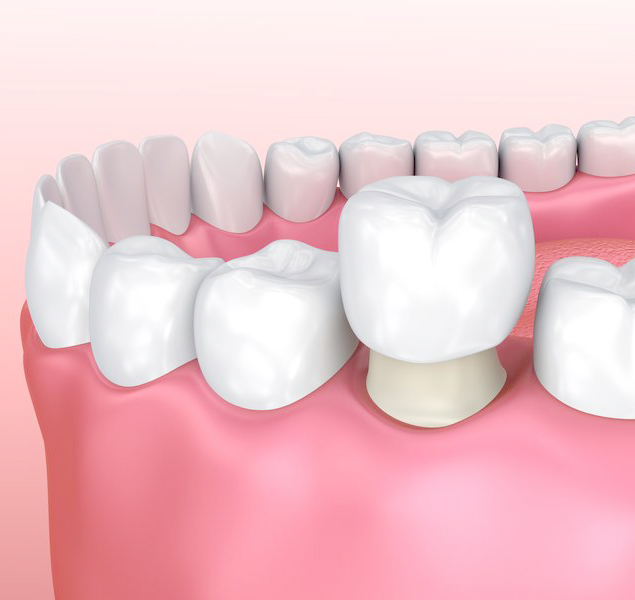Why Dental Crowns are Sometimes the Only Treatment Option

You may have had a familiar experience of being told by your dentist that one of your teeth needs to be crowned. This can come either as expected or unexpected news, depending on the state of the tooth itself and whether it is currently causing you any pain or discomfort. There are many reasons to crown teeth, in spite of patients often asking “can’t it just be repaired with a filling?” The truth is, in many cases fillings will not get the job done. Here are a few instances in which a crown is the treatment of choice.
Broken Tooth
Broken teeth rarely have the structural integrity to retain a filling after they have lost part of their structure. Most fillings rely entirely, or at least partially, on the design of the hole made in the tooth itself. When there is no longer enough tooth left to “hold on” to a filling, a crown is indicated since it can cover the entirety of what is left of the tooth.
Cracked or Fractured Tooth
Cracked teeth can come with painful symptoms or may present no symptoms at all. Regardless, a crown is often the right treatment for fixing this issue. Cracked teeth obviously have lesser structural integrity, putting them at greater risk for fracture. Cracked teeth that cause pain are obvious candidates for crowns, since the crown can usually alleviate the pain for good. Fillings are not the ideal treatment in the case of most cracks, because the crack must be completely eliminated before the tooth can be restored. This usually leaves less-than-ideal amounts of tooth structure for retention of a filling, as explained before.
Root Canal-Treated Tooth
Teeth that undergo root canal therapy, especially molars, are almost always crowned as a final step to the treatment plan. This is because the root canal process weakens the tooth substantially, and a crown is needed to ensure long term strength and function remain with the tooth.
Although many patients fear the idea of getting a crown, simply for reasons of cost, the good news is that crowns are of relatively high value. In other words, while they may be more expensive, they tend to last a very long time in the mouth, making them a sound investment in your oral health.



No Comment